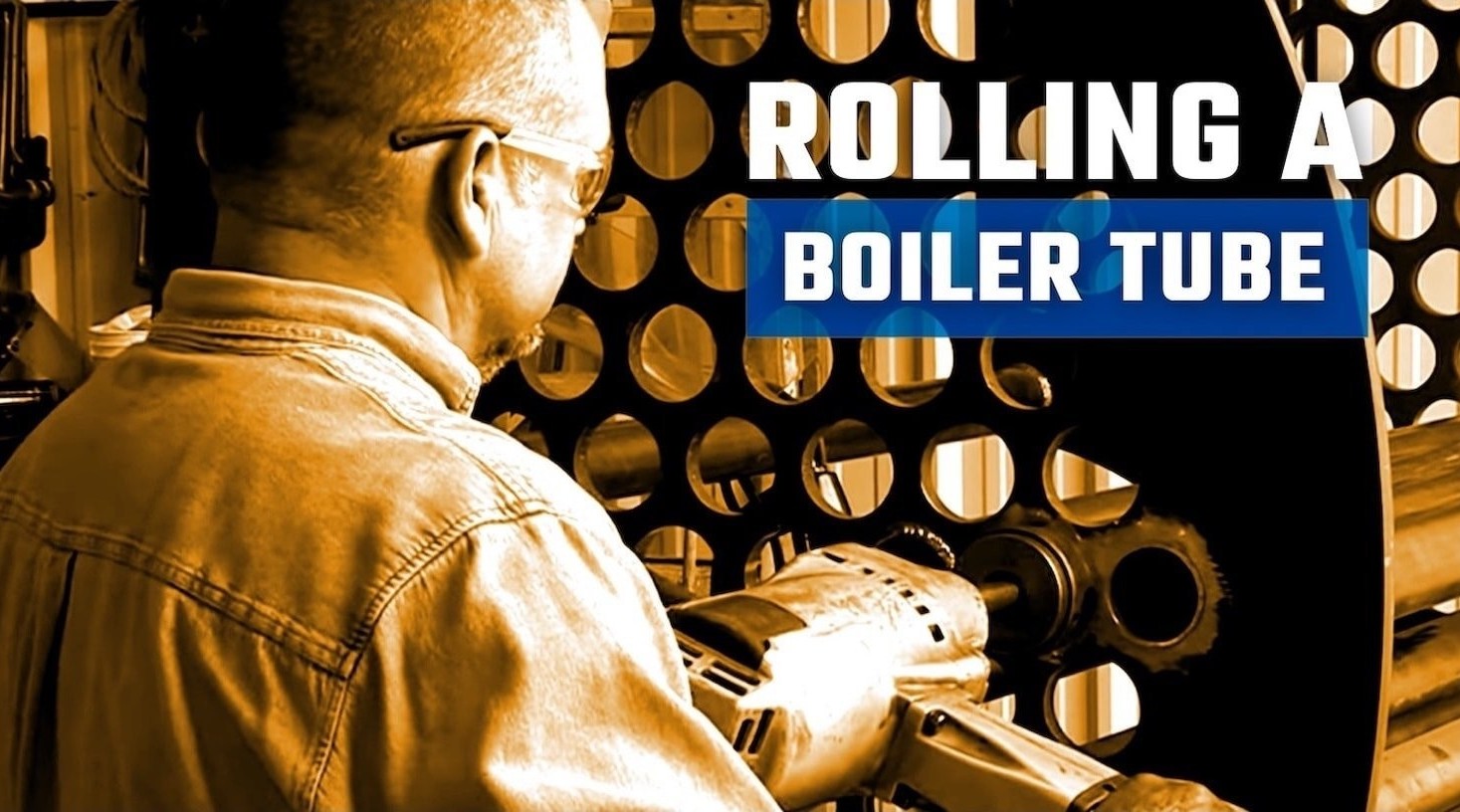The tube sheet in a boiler is basically a large metal plate with holes at even intervals through which the tubes pass. The distance between these holes is known as the “pitch”, and will vary from system to system. If you think the tube sheet is there to support the tubes, you’d be right. But it also serves a crucial function in regulating the flow of heat through the metal tubes.
The Heat Is On
As water or steam flows through a boiler system, part of the heat they contain is absorbed by the tubes through which they flow through or around. When heated evenly, the tube metal expands and contracts at a consistent rate. However, uneven heat flow can cause stress on the tubes where they join the tube sheet. When the tube ends have a consistent connection to the tube sheet, heat can flow and dissipate evenly. To get this connection, the ends of hot pass tubes are often are rolled, welded, and then rolled again where they join the tube sheet.
Just Passing Through
To properly mount and roll a tube in the tube sheet in the hot pass, the tube is first inserted into the hole in the tube sheet. The end of the tube that protrudes through the sheet is then rolled and expanded into the tube sheet using a special expanding roll. That rolling is actually what seals the tube in place in the tube sheet. The weld that comes next serves only to increase metal-to-metal contact.
Weld Done
When the weld is applied to the tube where it passes through the tube sheet, it helps create a solid, consistent, metal-on-metal joint through which heat can flow evenly, reducing heat-related stress and the likelihood of a crack developing.After welding, the tube is rolled once again to maximize contact and remove any rough edges.
Attention to detail. It’s a big part of the pride we put into every boiler we work on. If you need a boiler, get it from WARE, and know that it’s maintained right.
